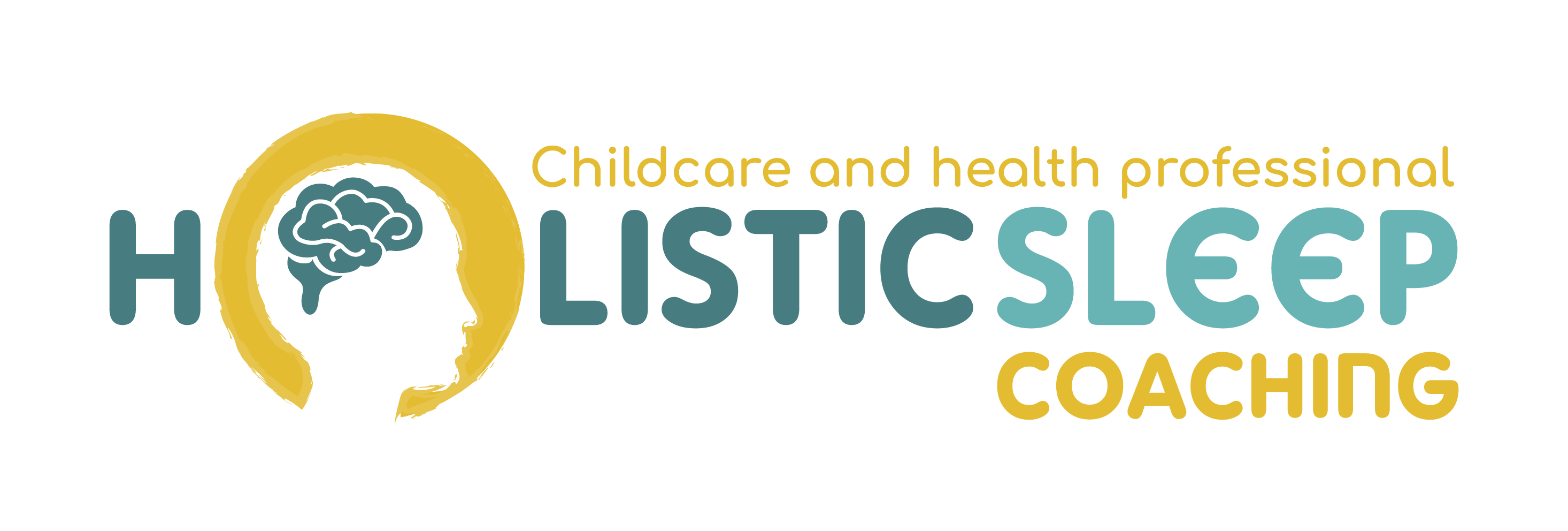The Holistic Sleep Coaching program teaches its students and followers that almost nothing about health, wellbeing and sleep should be viewed in isolation. Humans are connected beings: we connect parts of ourselves, and we connect with other humans. Compartmentalizing sleep solutions may sometimes yield improvements, but only when underlying emotional and mental health issues are addressed in tandem is the full benefit realized.

Emotional wellbeing
Emotional and mental health is something that the scientific community have been studying for decades. However, it is only recently that this has become mainstream. Mindfulness, meditation and emotional intelligence are now part of our everyday language. It’s easy to see why. In our stressed, highly charged and often intense lives, it is easy to experience burnout, depression, or poor self-esteem.
Achieving a positive sense of emotional wellbeing includes the experience of a sense of contentment, peace and confidence. Having positive self-esteem, social competence, emotional awareness, and the sensitivity to spot another persons’ sense of the same leads to better work, relationship and personal outcomes according to research studies. In fact, emotional wellbeing leads to better quality of life than economic success, with a recent study finding that money really can’t buy happiness.
Emotional health is also linked with mental health – that is, feeling in tune with your emotions leads to a greater sense of optimism, control and confidence. Have you met people who understand not only how they are feeling, but also why they are feeling that way, what the trigger was, and what positive steps they can take to address that feeling? You will notice that these people are calmer, more grounded and less likely to lose their temper.
Positive emotional health isn’t just about feeling happy all the time – that’s not real life. Happy ever after’s may work well in fairy stories, but the pursuit of this kind of sugar-coated life is the pursuit of a myth, and will ultimately end in disappointment. However, contentment and happiness are two different things. Contentment can be found by everyone willing to work on their emotional wellbeing.
Mental health across the lifespan
Many people think that emotional and mental health is largely unrelated to infants and children. This is a mistake. The best ways to promote optimal emotional health are proactively, early and normally.
- Proactive: Emotional health is best grown, rather than fixed. Unborn babies can sense the emotional state of the world around them, and it affects them. Recent studies have found that infants exposed to significant stress prenatally experienced more cry-fuss behaviour and separation anxiety after birth. The emotional health of pregnant women thus needs to be taken seriously, with women given strategies to manage stress and anxiety. Parents arguably also need to be aware of how they can best react to infant crying and other negatively perceived behaviours. Managing an infant or child’s intense emotions in a positive way can have profoundly positive effects on their coping abilities, emotional regulation and confidence.
- Early: When babies and children’s emotions are handled positively, and constructively, they learn that a whole range of emotions are normal and that other people are there to help them manage those feelings until they are mature enough to deal with them on their own. In infancy, this may be as simple as correctly interpreting infant response, and then effectively dealing with needs. Older babies need more play, stimulation and then also a chance to calm down. Toddlers need support to understand their emotional responses, learn patience and have exposure and support with challenges such as disappointments, sadness and delays. If this emotional awareness becomes woven into the fabric of everyday life from the early days then children are more likely to develop emotional awareness and insight, as well as problem-solving skills and self-regulation.
- Normally: Emotions, outbursts, bad tempers, disappointments, frustrations, boredom, sadness, joy and excitement are all part of normal everyday life. If parents can learn to model appropriate management of emotion, demonstrate effective strategies for calming down, being still or handling tricky situations, then this becomes normalized, and children are far more likely to be emotionally authentic, and not bottle up their feelings. Children whose parents displayed a negative response to emotions such as anger, fear, sadness or frustration have been found in some studies to be more likely to be socially inhibited, depressed, or lack self-regulation.
In decades past, the common wisdom was that children need to ‘toughen up’, that ‘big boys don’t cry’ and being promptly responsive is ‘pandering’ to a child. It was felt that responsiveness and gentleness would be counter-productive to a child’s independence and confidence. Fast forward a few decades worth of research and it is very clear that the evidence suggests the exact opposite, and that a child’s emotional needs are of the utmost importance for the development of secure attachments, relationships and self-regulation.
Parental mental health
Parents to a large extent hold the keys to the development of their child’s emotional intelligence. But at the same time, they may be battling their own private mental and emotional health demons. They may be struggling with the lifelong fallout of their own insecure attachment or find the adjustment to parenthood a profound struggle. Even if a parent is glorying in their role as a parent, they still need to carve out time for their own emotional health to avoid:
- Burnout
- Exhaustion
- Relationship struggles
- Low self-confidence
It is normal and common to find parenting difficult at times, and when there are additional adversities it may be even more challenging. But many people are becoming increasingly aware of the need to slow down, find time to connect with friends, loved ones, nature and stillness to achieve balance and positive emotional wellbeing.
Exhaustion in parenthood is often attributed to sleep deprivation, night feeds, or the intense needs of a child. Exhaustion may be caused by some or even all of those things, but I am constantly reminding people that fatigue and weariness also comes from dissatisfaction, poor mental health, poor work-life balance or insufficient meaningful adult relationships.
Investing in community, social support, family members and significant others, as well as carving out time for individual pursuits, hobbies, leisure and exercise is incredibly important.
This is all before we even consider significant mental health problems such as depression, trauma, anxiety and significant stress. Being proactive about stress management is an integral part of supporting sleep, but when there is a serious or enduring mental health problem, additional support may be required alongside proactive strategies.
The interplay between parents and children’s mental health
Humans are born to be relational. We affect and are affected by each other, and by life changes brought about by welcoming other humans into our lives. To address one family member’s needs and fail to consider the others is a profound mistake. Family centred care is the idea that children (and arguably all of us!) only make sense in the context of the family and environment in which they are being raised, and therefore the best way to treat children is by supporting parents and other family members to be at the centre of a child’s care. But we need to care for parents and siblings as much as we do a child who is struggling to sleep.
Parents can be affected by their partner, their life circumstances, their own mental health, or by their work, home and financial struggles. Children can be affected by a parent’s struggle to cope, poor mental health, suboptimal parenting style, or the family dynamic.
Emotions are contagious, and therefore the emotional climate of the household can become stuck, for better or worse. When we improve one family member’s mental or emotional health, it tends to have a ripple effect. In this way, holistic sleep coaching becomes more of a family wellbeing exercise when it is done effectively.
How does emotional state affect sleep?
Sleep can be significantly affected by our emotional state. Almost everyone knowns what it feels like to be burdened by anxious thoughts, stress, or the vicious circle of counting down how many hours until you are likely to have to get up. The way in which we fall asleep, and how quickly we fall asleep has a huge impact on the quality of our sleep overall, so emotional health really matters.

Stress, anxiety and depression can delay us falling asleep, shorten the overall length of sleep, decrease sleep efficiency, and reduce the amount of deep sleep we achieve. This can have a number of effects. Frequently, people who are stressed, anxious, or burnt out report that it takes a long time to fall asleep, or that they rely on alcohol to induce sleep, only to find themselves either waking up in the night inexplicably, or waking up in the morning feeling as if they haven’t even been to sleep. Unrefreshing sleep is very demoralizing. I get a lot of parents who put their fatigue down to their child’s nighttime habits, or early rising, but when their emotional health is improved, they report better quality sleep even before we address their child.
Another factor to consider is that if it takes a long time to fall asleep, even an average number of night feeds may feel unsustainable, as the disruption in sleep is more than the time taken to feed and settle a baby, but the time spent trying to fall asleep again.
In these ways, and more, poor emotional and mental health may be the single biggest factor underlying parental fatigue. Therefore, addressing this will improve sleep automatically.
How to improve your emotional health
Some people are already aware of the numerous ways in which they can begin to take some positive steps towards improving their emotional health. Here are just a few:
- Try a meditation app, CD or download
- Do something that is just for yourself, every day. Even if it is just 10 minutes
- Try listening to guided meditations before sleep
- Go to bed earlier!
- Acknowledge the areas in your life that are stressful.
- Give yourself a break. Life is sometimes really hard. Nobody is perfect.
- Talk to adults who understand where you are coming from
- Invest in social relationships
- Do something every day that you enjoy
- Develop coping strategies for when you are stressed – deep breathing, mindfulness, and thought journaling are some of my favourites

Everyone is capable of taking some level of ownership of their emotional health and wellbeing. When adults begin incorporating it into their lives, it will begin to spill over into our children’s as well.
Addressing sleep and emotional health simultaneously
I hope by now that it is clear that sleep, emotional and mental health are inextricably linked. Addressing one of these in isolation will not achieve the best results for families. The best way to improve all three areas for yourself or your clients is to normalize emotional health, and make it part of everyday life, whether for pregnant mothers, parents, infants, children or yourself.

